Articles Archive
- August 2022
- May 2021
- January 2021
- March 2020
- January 2017
- July 2016
- January 2015
- November 2014
- January 2014
- December 2013
- August 2013
- July 2013
- June 2013
- September 2012
- July 2012
- May 2012
- March 2012
- February 2012
- January 2012
- November 2011
- October 2011
- July 2011
- April 2011
- December 2010
- September 2009
- June 2009
- March 2009
- December 2008
- September 2008
- June 2008
- March 2008
- December 2007
- September 2007
- June 2007
- March 2007
- December 2006
- September 2006
- June 2006
- March 2006
- December 2005
- September 2005
- June 2005
- March 2005
- January 2005
- December 2004
- October 2004
- September 2004
- June 2004
- April 2004
- March 2004
